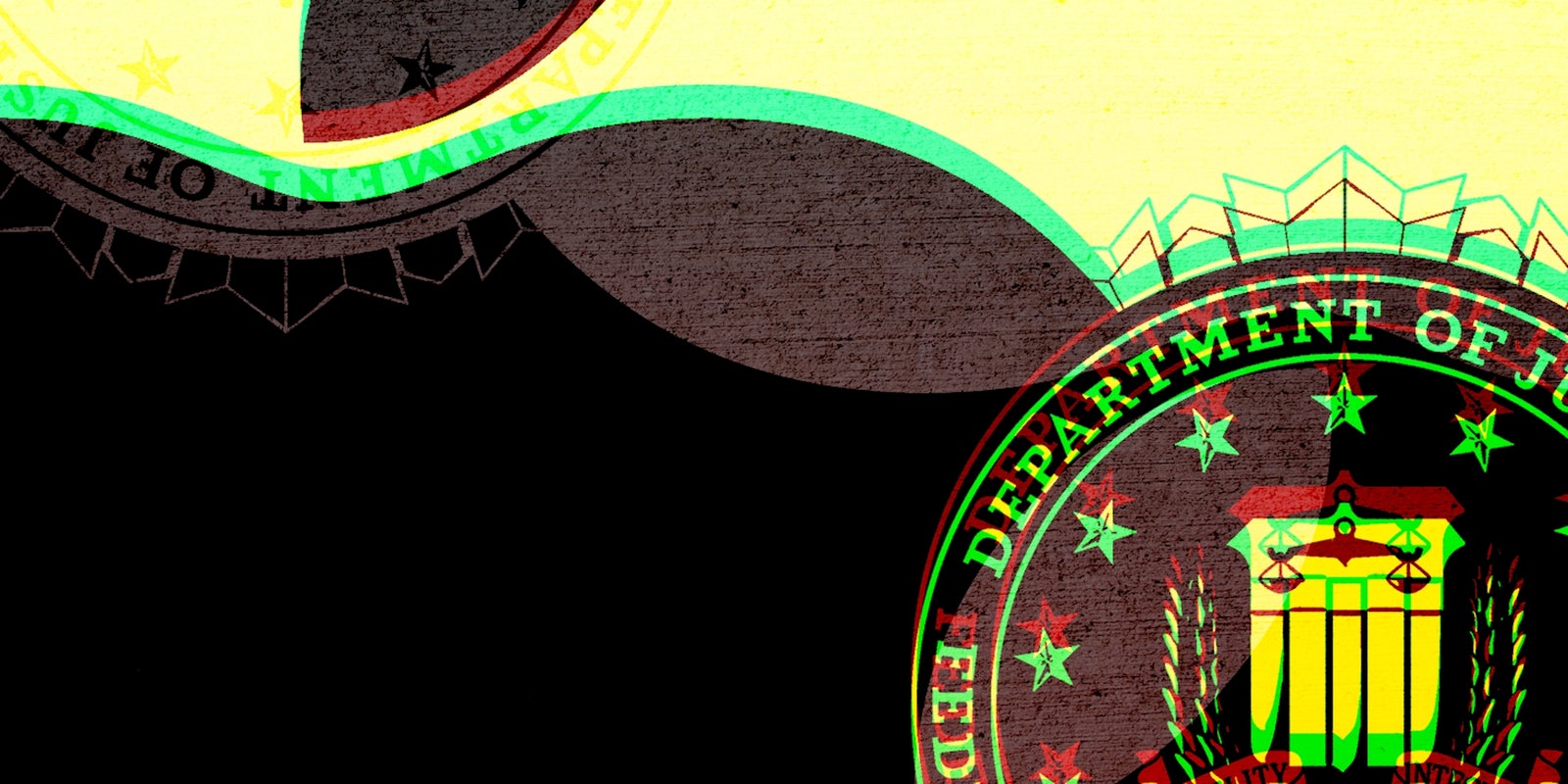FBI Director James Comey will warn Congress at a hearing on Tuesday about the dangers of unbreakable encryption.
“When changes in technology hinder law enforcement’s ability to exercise investigative tools and follow critical leads, we may not be able to root out the child predators hiding in the shadows of the Internet, or find and arrest violent criminals who are targeting our neighborhoods,” Comey will say, according to his prepared remarks.
Comey’s testimony comes a day after a New York federal judge rejected the FBI’s request to force Apple to help it access the iPhone of a convicted Brooklyn drug dealer. In California, a magistrate judge recently issued a similar order targeting the iPhone of one of the San Bernardino shooters. Apple is vigorously contesting that order in court and in public, and it is this high-profile battle that prompted Tuesday’s hearing.
The two court orders are part of a broader debate about whether tech companies should design their encryption with holes—which critics call “backdoors”—that allow them to bypass the encryption if investigators present a warrant. Comey and some other senior officials argue that guaranteed-access schemes are the only way to prevent terrorists from “going dark” behind encryption. Opponents counter that backdoors would weaken encryption and push people to foreign platforms.
“We may not be able to identify and stop terrorists who are using social media to recruit, plan, and execute an attack in our country,” Comey will tell lawmakers. “We may not be able to recover critical information from a device that belongs to a victim who cannot provide us with the password, especially when time is of the essence. These are not just theoretical concerns.”
Comey’s testimony takes pains not to appear to back one side of the encryption debate, merely sounding a warning and asking a crucial question: “Once all of the requirements and safeguards of the laws and the Constitution have been met, are we comfortable with technical design decisions that result in barriers to obtaining evidence of a crime?”
After Comey’s testimony, Bruce Sewell, Apple’s senior vice president of legal and government affairs, will testify alongside Manhattan District Attorney Cyrus Vance, a supporter of encryption backdoors, and Susan Landau, a professor of cybersecurity at Worcester Polytechnic Institute.
“The FBI is asking Apple to weaken the security of our products,” Sewell will tell the committee. “Hackers and cyber criminals could use this to wreak havoc on our privacy and personal safety. It would set a dangerous precedent for government intrusion on the privacy and safety of its citizens.”
Sewell will echo Apple CEO Tim Cook, an outspoken encryption defender, with a warning of his own: Undermining the security of smartphones will directly affect all Americans.
“Some of you might have an iPhone in your pocket right now, and if you think about it, there’s probably more information stored on that iPhone than a thief could steal by breaking into your house,” Sewell will tell Congress. “The only way we know to protect that data is through strong encryption.”
Cyrus Vance, Jr., the Manhattan district attorney, who will testify next to Sewell, plans to take a more pointed approach than Comey.
Vance will argue that unless Congress acts and grants law enforcement access to encrypted devices, “our nation will effectively delegate the crafting of national security and law enforcement policy to boardrooms in Silicon Valley.”
Taking the fight directly to Cook, Vance will cite the CEO’s widely read open letter, in which he said that iPhones contain an “incredible amount of personal information,” unrivaled by any single device or entity in history.
That is exactly why law enforcement need access, Vance will argue. “Investigating a case without access to this evidence is doing so with one hand tied behind our backs.”
Landau, presenting an academic’s perspective, will offer a pointed reminder that this is not a “security vs. privacy” argument.
The way we use our phones is very different than a decade ago; they are, as the Supreme Court observed in Riley v. California, “minicomputers that also happen to have the capacity to be used as a telephone. [The phones] could just as easily be called cameras, video players, rolodexes, calendars, tape recorders, libraries, diaries, albums, televisions, maps, or newspapers’.” Smartphones are already holders of account information (financial and otherwise), and are poised to become authenticators to a wide variety of services we access via the Internet. And that is why we have a security versus security story.
Landau will also forcefully defend Apple’s position as “crucial” to the cybersecurity of American individuals and national security as the importance of networked data continues to rise.
Her testimony—the longest and most thorough of the prepared remarks—offers a wealth of evidence, in the form of quotes and historical context, to back up her argument that surveillance is more robust now than ever before.
The country, Landau will insist, is not “going dark.”
“We have the option to press companies to develop as secure and private devices as they can, or to press them to go the other way,” Landau will tell Congress. “Let us make the right decision, for our safety, long-term security, and humanity.”
Illustration via Max Fleishman
